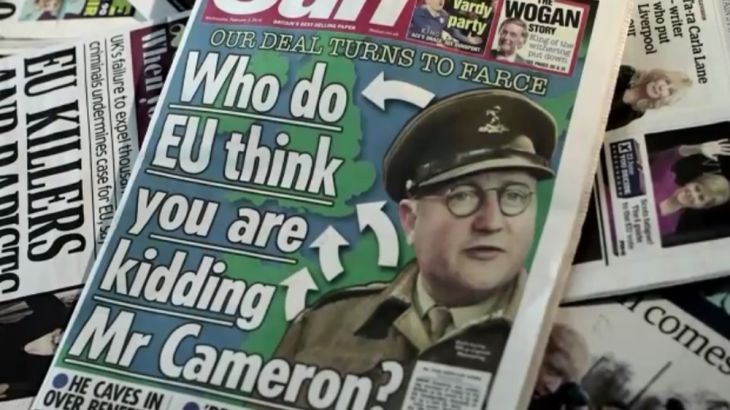
Did the UK media help make Brexit a reality?
Has the tone of UK media coverage shifted since the EU referendum? Plus, the coverage of solitary confinement in the US.
On The Listening Post this week: Did the British media do their job before the European Union vote? Has the tone of the coverage shifted since? Plus, the coverage of solitary confinement in the United States.
Did British media show Brexit bias?
Keep reading
list of 4 itemsNPR editor resigns after accusing US outlet of liberal bias
Lawmakers brawl as Georgian Parliament considers ‘foreign agent’ bill
Journalist loses foot after being badly wounded in Israeli attack in Gaza
It has been more than a week since the UK voted to leave the EU and the story continues to dominate the headlines. But did the British media do their job before the vote? Were the facts sufficiently covered and were broadcasters as impartial as they are required to be? And has the tone shifted now that Brexit is a reality?
Talking us through the story are: Justin Lewis, a professor of Communications, Cardiff University; Natalie Fenton, vice chairwoman of Hacked Off and professor of Communications, Goldsmiths University; Toby Young, a journalist for Spectator; and Craig Murray, author and blogger.
On our radar
In South Africa, the state-owned broadcaster has replaced its chief executive for the tenth time since President Jacob Zuma took power seven years ago.
Liliane Daoud – one of Egypt’s few remaining critical broadcasters – has been taken off the air, arrested and deported.
Arrests at Algeria’s KBC TV after two satirical shows were taken off the air by the authorities.
Letters from the inside: Reporting on solitary confinement in the US
It’s been called one of the biggest human rights issues Americans have never heard of. More than 80,000 people in the US are held in solitary confinement on any given day and the media rarely get access. Popular culture demonises them, but some journalists are bringing their stories to light.
Talking us through the story are: James Ridgeway, cofounder, Solitary Watch; Johnny Perez, Urban Justice Centre; Ricky Jones, radio host, ‘Unlocked’; and David Fathi, National Prison Project, American Civil Liberties Union.